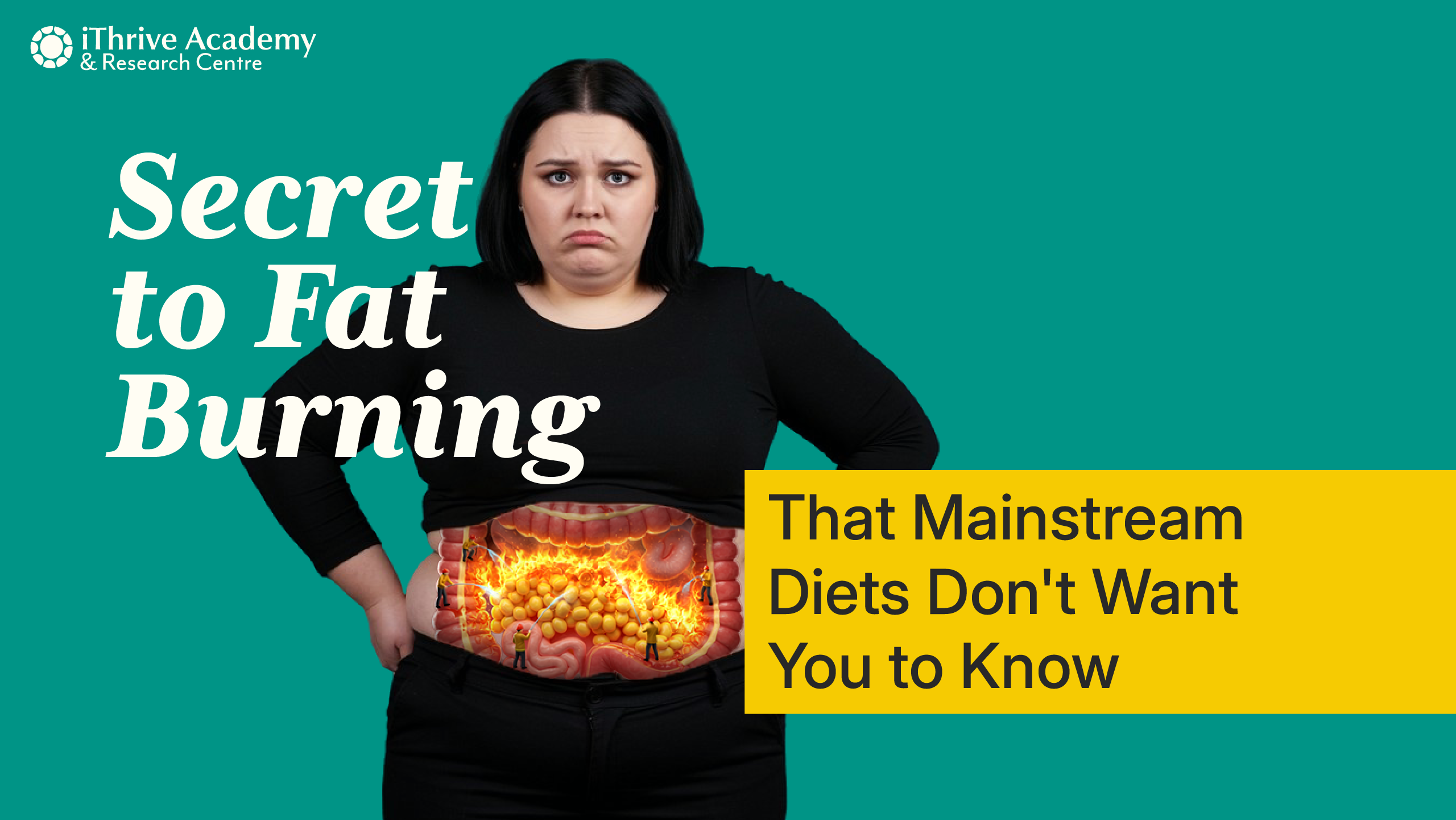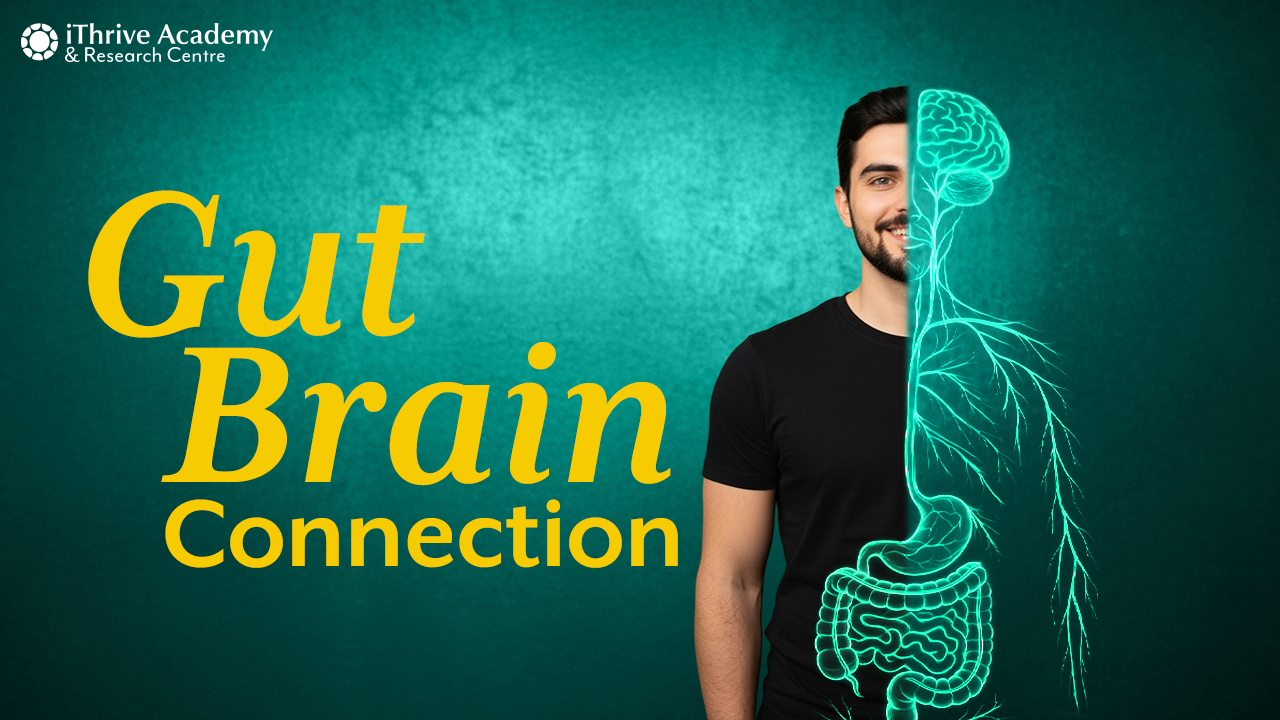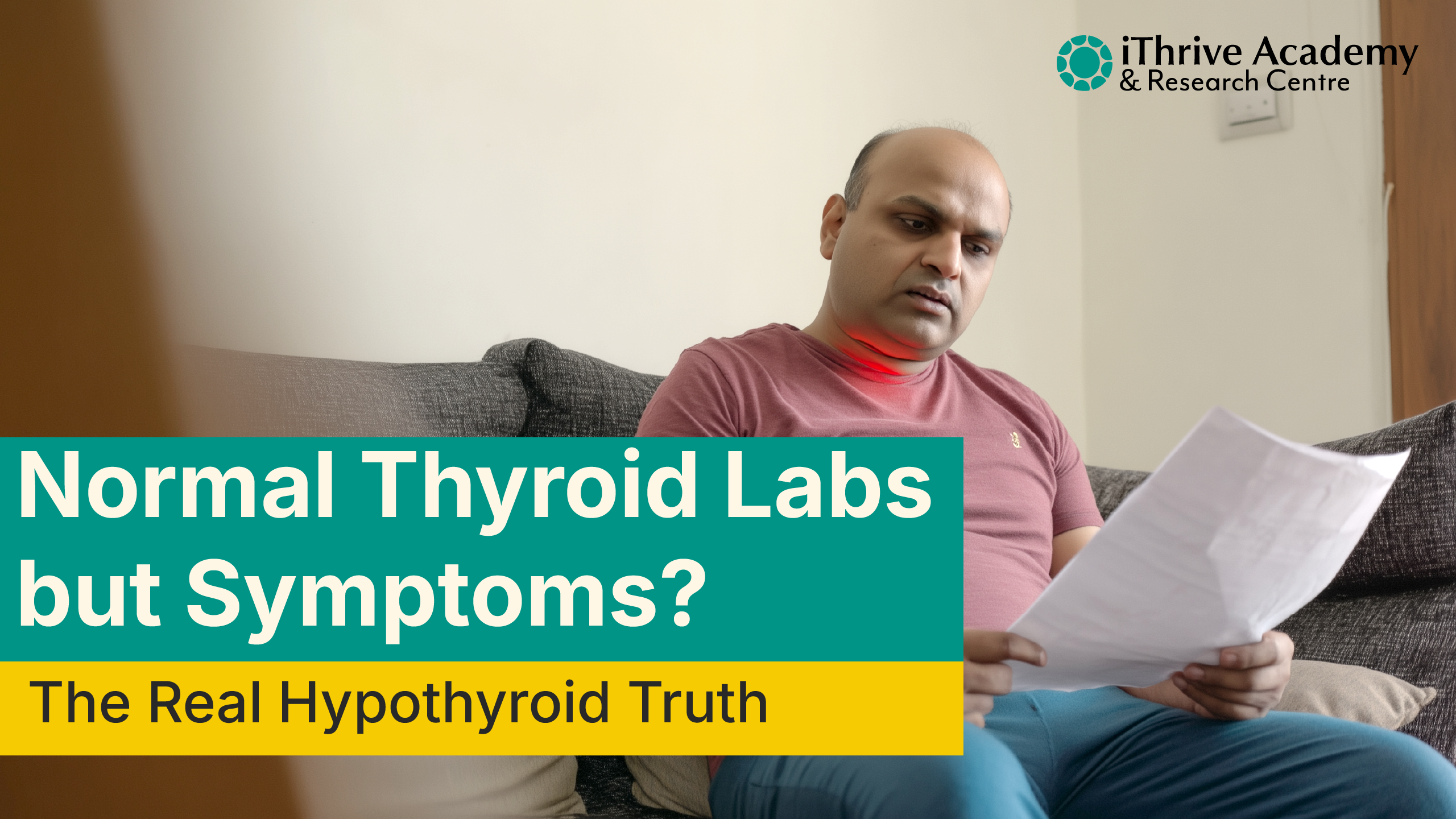"I've been working out five days a week and counting every calorie for three months. I've cut out desserts, bread, and pasta. I even tried that detox tea everyone's raving about. So why won't these love handles budge?" Sound familiar? If you're nodding your head right now, you've come to the right spot. Your body isn't a simple math equation. Those "calories in, calories out" calculations we've all been taught? They're just the beginning of the story.
Fat loss is about changing what makes up your body. Imagine two people who both weigh 150 pounds. One might have strong muscles and healthy fat levels, while the other might have less muscle and more fat tissue. Same weight, completely different bodies!
Let's examine what happens when your body refuses to burn fat and, more importantly, what you can do about it.
The Science of Fat Metabolism
Before we blame ourselves for lacking willpower or not trying hard enough, let's understand what happens when our bodies burn fat.
Hormones: The Fat-Burning Gatekeepers
- Insulin is a hormone produced by the pancreas that regulates blood glucose levels. When you consume carbohydrates, especially refined carbs and sugars, your blood glucose rises, triggering insulin secretion. This is why consistently high insulin levels from frequent carbohydrate consumption can significantly impair fat loss efforts. The timing of carbohydrate intake also matters. Evening consumption may lead to higher insulin levels during rest periods when your body has less immediate need for glucose as energy.
- Cortisol is your primary stress hormone, released by the adrenal glands in response to physical, emotional, or psychological stressors. While cortisol plays essential roles in metabolism and inflammation regulation, chronically elevated levels can sabotage fat loss. But in our modern high-stress environment, it contributes to the stubborn belly fat that any person struggles with. Additionally, cortisol can increase appetite, particularly for calorie-dense foods, while simultaneously breaking down muscle tissue, creating a metabolic environment that opposes fat loss.
- Thyroid hormones, primarily T3 (triiodothyronine) and T4 (thyroxine), function as metabolic regulators, controlling the rate at which your body converts nutrients into energy. However, numerous factors can impair optimal thyroid function, including nutrient deficiencies (especially iodine, selenium, and zinc), chronic stress, even diet, certain medications, and environmental toxins.
- Leptin is a powerful hormone produced by fat cells that plays a key role in regulating hunger and metabolism. Often called the “fat-burning gatekeeper,” leptin signals your brain when you're full and helps control how your body uses energy. When leptin levels are balanced, your body burns fat efficiently. However, imbalances- often caused by poor diet, stress, or lack of sleep can disrupt this signal, leading to overeating, weight gain, and stubborn fat retention.
Muscle Mass
Every kg of muscle burns about 6 calories per day at rest, compared to fat, which burns only 2 calories. That might not sound like much, but it adds up! Someone with an extra 10 pounds of muscle burns 40 calories daily just existing. That's roughly 4 pounds of fat loss per year without changing anything else.
Mitochondrial Health
When your cellular furnaces aren't working well, you can diet and exercise all you want, but your fat-burning potential will always be limited. Many factors can make the mitochondria less efficient:
- Age
- Lack of physical activity
- Nutrient deficiencies (especially B vitamins, magnesium, and Coq10)
- Environmental toxins (chemicals in plastic, cleaning products, and processed foods)
Common Reasons You're Not Burning Fat

Nutritional Factors
Overconsumption of Calories
Healthy foods still contain calories, and portion control matters. A handful of almonds (about 160 calories) might be healthy, but mindlessly munching through half a container while watching TV (800+ calories) is not, regardless of how "natural" they are.
Macronutrient Imbalances
Protein isn't just for bodybuilders, it's essential for everyone trying to lose fat because it:
- Makes your appetite satiated for longer
- Preserves your muscle while you lose fat
- Requires energy to digest (up to 30% of protein calories are burned just processing it!)
Frequent Snacking
We've all heard that eating small, frequent meals "stokes the metabolic fire," right? Well, when you eat constantly throughout the day, even healthy snacks, your insulin levels stay elevated, essentially locking the door to your fat cells. Your body never gets the chance to tap into stored fat for energy because it's constantly processing the food you're feeding it.
Interestingly, many people find that extending the time between meals (even just overnight) makes a dramatic difference in their fat loss results. This practice, sometimes called intermittent fasting, gives your body a chance to lower insulin and access those stubborn fat stores.
Exercise Misconceptions
Overreliance on Cardio
Excessive cardio without strength training can cause you to lose muscle along with fat. Less muscle means a slower metabolism, setting you up for the dreaded weight regain when you inevitably can't maintain those long cardio sessions.
Cardio is important for heart health and burning calories. But for sustainable fat loss, it's just one piece of a bigger puzzle.
Lack of Progressive Overload
Are you still doing the same workout routine you started with months ago? Using the same weights? Running the same distance?
Your body is an amazing adaptation machine. When you first start a new exercise, your body responds quickly because it's a new challenge. But within weeks, it becomes more efficient at that movement, burning fewer calories and building less muscle. This is why people often see great results at first, only to hit the dreaded plateau.
Progressive overload, gradually increasing the challenge, is essential for continued results. This doesn't mean you need to become a powerlifter overnight! Even small increases in weight, reps, or intensity can make a huge difference over time.

Exercise Without Recovery
More isn't always better with exercise. Without adequate recovery time, your body produces excess cortisol, which breaks down muscle and promotes fat storage, exactly the opposite of what you want!
Your muscles don't grow during workouts; they grow during recovery. That rest day isn't laziness, it's an essential part of your fat loss strategy.
Lifestyle and Behavioural Factors
Chronic Stress
When you're chronically stressed, whether from work deadlines, family responsibilities, financial worries, or even the pressure to lose weight, your body produces cortisol. This hormone:
- Triggers cravings for high-calorie comfort foods
- Disrupts sleep, making everything worse
- Signals your body to store fat, particularly around your midsection
- Breaks down muscle tissue over time
Research shows that women with higher chronic stress have significantly more abdominal fat, even when their overall weight is similar to less-stressed women. 1
Sleep Deprivation
Have you also observed that on days when you sleep less than 6 hours of sleep, you consume an average of 500 extra calories, primarily from carb-heavy snacks? Poor sleep:
- Cranks up ghrelin
- Suppresses leptin
- Reduces insulin sensitivity (making your body more likely to store fat)
- Depletes the mental energy needed to make healthy choices
Lack of sleep affects your hunger hormones. When you're sleep-deprived, leptin levels drop. This hormone signals fullness to your brain. As a result, your brain thinks you're still hungry, leading to increased cravings, especially for high-calorie foods. Over time, this can lead to weight gain, a sluggish metabolism, and poor energy levels. Research shows that well-rested individuals lose 55% more fat and maintain more muscle while dieting compared to those who don’t get enough sleep, even on the same diet.2
Sedentary Behavior
"But I work out for an hour every day!" That's great, but what about the other 23 hours? Extended sitting:
- Reduces an enzyme called lipoprotein lipase that helps process fats
- Decreases muscle activity and calorie burning
- Weakens the glute muscles that support metabolism
- Slows down overall circulation and nutrient delivery
The solution isn't complicated: stand up and move around for a few minutes every hour. Take phone calls standing up. Use a half-time bathroom on a different floor. Park farther away. These "micro-movements" throughout the day can have a significant impact on your body's fat-burning potential.
Psychological and Emotional Aspects
Emotional Eating
Food is more than just fuel. For many of us, it's comfort, celebration, stress relief, or boredom buster. But, it is important to identify your emotional triggers and find non-food finding ways to address these emotions is crucial for long-term success.
Unrealistic Expectations
In a world of "30-Day Transformations" and "Lose 20 Pounds Fast" headlines, it's no wonder many people are frustrated when they lose "only" 5 pounds in a month.
But healthy, sustainable fat loss typically happens at a rate of 0.5-2 kg per week. This adds up to 25-100 pounds in a year, a weight that's much more likely to stay off. When you expect miracle results and don't see them, disappointment leads to giving up entirely.
Functional Nutrition Strategies to Enhance Fat Burning

Personalised Nutrition Plans
Assess Individual Needs
A functional approach considers YOUR unique factors:
- Genetic predispositions (like how you process certain nutrients)
- Health conditions (thyroid issues, PCOS, insulin resistance)
- Food sensitivities (which can cause inflammation and water retention)
- Lifestyle realities (travel schedule, cooking skills, family needs)
- Blood markers
- Advanced test
Focus on Whole Foods
No matter what personalised approach works best for you, one universal truth remains: your body thrives on real, minimally processed foods.
Prioritise:
- Colourful vegetables and fruits (nature's multivitamins)
- Quality proteins (like meat, fish, eggs)
- Complex carbohydrates (sweet potatoes, quinoa, legumes)
Optimising Macronutrient Ratios
Protein Intake
It is the most important macronutrient for fat loss because it:
- Preserves and builds metabolically active muscle
- Has the highest thermic effect (meaning your body burns more calories digesting it)
- Keeps you full longer than carbs or fats
Aim for 0.7-1 gram of protein per pound of target body weight. For a 150-pound person, that's about 105-150 grams daily, spread throughout your meals.
Great sources include:
- Lean meats and poultry
- Fish and seafood
- Eggs
- Greek yoghurt
- Plant options like lentils, pulses and legumes
Healthy Fats
Dietary fat doesn't automatically become body fat. Healthy fats are essential for:
- Producing hormones that regulate metabolism
- Absorbing fat-soluble vitamins (A, D, E, K)
- Feeling satisfied after meals
- Brain health and mood regulation
Include sources like:
- Avocados (great on everything from toast to smoothies)
- Ghee and coconut oil (MCT) (for dressings and low-heat cooking)
- Nuts and seeds (perfect portable snacks)
- Fatty fish like salmon (packed with omega-3s)
Complex Carbohydrates
Carbs have been demonised in recent years, but the truth is more nuanced. The TYPE of carbohydrates you eat matters enormously. Processed, refined carbs (white bread, pastries, sugary cereals) spike blood sugar and insulin, promoting fat storage. But fibre-rich, complex carbs can:
- Fuel your workouts
- Feed beneficial gut bacteria
- Provide essential nutrients and antioxidants
- Keeps you satiated
Focus on:
- Vegetables
- Berries and lower-sugar fruits
- Legumes like beans and lentils
- Whole grains (oats, quinoa, brown rice)
Incorporating Physical Activity
Resistance Training
If you want to change your body composition (not just your weight), strength training isn't optional; it's essential.
Resistance training:
- Builds metabolically active muscle tissue
- Creates an "afterburn effect" that continues burning calories post-workout
- Improves insulin sensitivity, helping nutrients go to muscles instead of fat cells
- Gives your body shape and definition as fat is lost
You don't need to become a gym rat or lift heavy weights. Even bodyweight exercises like squats, push-ups, and lunges can be extremely effective when done consistently and progressively.
High-Intensity Interval Training (HIIT)
If you're short on time but want maximum fat-burning results, HIIT might be your new best friend. HIIT workouts alternate between brief periods of intense effort and recovery. A simple example: sprint for 30 seconds, walk for 90 seconds, repeat 8 times. The entire workout takes just 20 minutes, but the benefits are remarkable:
- Continued calorie burning for up to 24-48 hours post-workout
- Preservation of muscle mass
- Improved mitochondrial function
- Enhanced cardiovascular health
Movement Throughout the Day
The most overlooked aspect of physical activity isn't your structured workout, it's what you do during the other 23 hours of the day. Non-exercise activity thermogenesis (NEAT) refers to all the calories you burn through daily movement that isn't formal exercise. This includes:
- Walking around your home or office
- Fidgeting
- Standing instead of sitting
- Cleaning your house
- Gardening
- Playing with your kids or pets
Lifestyle Modifications
Stress Management
Telling someone to "just relax" is about as helpful as telling someone to "just lose weight." Instead, let's talk about practical stress management techniques that work:
- Deep breathing: Even 2 minutes of deep belly breathing can lower cortisol levels. Try inhaling for a count of 4, holding for 7, and exhaling for 8.
- Nature exposure: Research shows that just 20 minutes in a natural setting significantly reduces stress hormones.3
- "Gray area" thinking: Replace black-and-white thinking ("I have to be perfect or I've failed") with nuanced thinking ("I'm making progress, even with occasional setbacks").
- Boundaries: Learn to say no to additional responsibilities when your plate is full.
Sleep Hygiene
If you're not prioritising sleep, you're sabotaging your fat loss efforts.
- Maintain a consistent sleep/wake schedule (even on weekends)
- Create a cool, dark, quiet sleeping environment (68°F is ideal)
- Avoid screens 1-2 hours before bed (or use blue light blocking glasses)
- Limit caffeine after noon and alcohol in the evening
- Develop a relaxing bedtime routine (like reading, stretching, or taking a bath)
Debunking Common Fat Loss Myths
Myth 1: Spot Reduction is Effective
How many of us have done hundreds of crunches, hoping to get rid of belly fat?
The truth is, your body decides where it loses fat based on genetics and hormones, not which muscles you're exercising. You can have the strongest abs in the world hiding under a layer of fat if your overall body fat percentage remains high.
This doesn't mean targeted exercises are useless. Strengthening your core is great for posture, performance, and appearance once the fat comes off, but you can't selectively burn fat from specific areas through exercise.
Myth 2: All Calories Are Equal
Imagine two people, both consuming exactly 1,800 calories daily:
- Person A eats mostly processed foods, refined carbs, and added sugars
- Person B eats whole foods, adequate protein, healthy fats, and fibre-rich carbs
Even with identical calorie intake, Person B will likely:
- Feel more satisfied and less hungry
- Have more stable energy and mood
- Preserve more muscle mass
- Experience less inflammation
- And yes, lose more fat over time
This happens because different foods:
- Require different amounts of energy to digest
- Impact hormones differently
- Affect hunger and satiety signals
- Influence gut bacteria composition
- Support or hinder muscle maintenance
Myth 3: Carbohydrates Cause Fat Gain
Carbohydrates themselves don't cause fat gain; chronically consuming too many calories does. Carbs are your body's preferred energy source, especially for:
- High-intensity exercise performance
- Brain function
- Certain cellular processes
The problems arise when:
- You consume heavily processed, fibre-stripped carbs that spike blood sugar
- Your overall diet is imbalanced or excessive in calories
- You're sedentary (active muscles can utilise carbs more effectively)
Embracing a Holistic Approach to Fat Loss
Successful fat loss isn't about finding the "perfect" diet or exercise routine. Those don't exist. It's about creating a sustainable approach that works for YOUR unique body and life circumstances. The key is understanding that your body is an interconnected system:
- What you eat affects your hormones
- Your hormones affect your energy and fat storage
- Your sleep affects your food choices
- Your stress levels affect your sleep
- Everything affects everything else
This might seem overwhelming at first, but it's empowering. It means you have multiple pathways to improve your results. Can't exercise as much as you'd like? Focus on optimising your nutrition and sleep. Struggling with food choices? Maybe addressing stress is your real priority.
Most importantly, be patient and kind to yourself throughout this process. Your body is incredibly complex and intelligent, not a simple machine. By working with your biology instead of fighting against it, you can finally achieve the sustainable fat loss that has eluded you in the past.

References
- Kumar R, Rizvi MR, Saraswat S. Obesity and Stress: A Contingent Paralysis. Int J Prev Med. 2022 Jun 24;13:95. doi: 10.4103/ijpvm.IJPVM_427_20. PMID: 35958362; PMCID: PMC9362746.
- Nedeltcheva AV, Kilkus JM, Imperial J, Schoeller DA, Penev PD. Insufficient sleep undermines dietary efforts to reduce adiposity. Ann Intern Med. 2010 Oct 5;153(7):435-41. doi: 10.7326/0003-4819-153-7-201010050-00006. PMID: 20921542; PMCID: PMC2951287.
- “MaryCarol Hunter: Feeling Stressed? Take a ‘nature Pill.’” University of Michigan News, 11 Apr. 2023, news.umich.edu/feeling-stressed-take-a-nature-pill-says-u-m-researcher.










.jpg)











